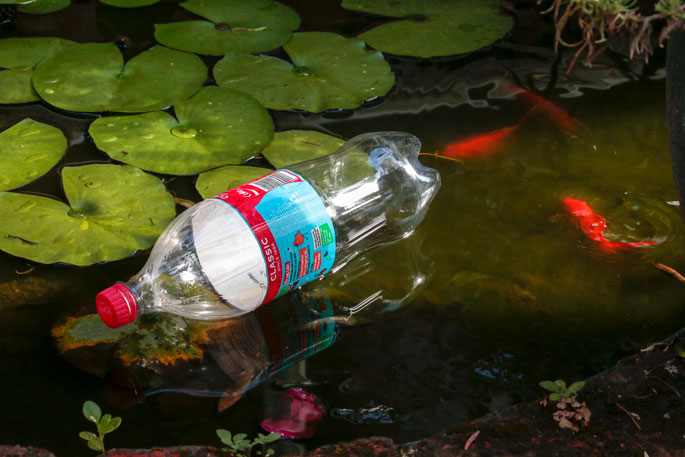It's a gloomy image. The equivalent of 700 jumbo jets full of beverage containers dumped into the environment or landfills each year.
And it's costing New Zealand millions of dollars in clean-up costs and loss of valuable resources.
Statistics like this, from consultancy Envision NZ, are helping drive the case for container deposit legislation – cash for trash, refundable beverage containers, putting value on drink bottles so they are recycled, not dumped.
Their report says container deposit legislation is moving like wildfire through Australia and it's inevitable a system will return to New Zealand.
'But why aren't we doing it tomorrow?” asks Marty Hoffart, director of Tauranga waste minimization consultancy Waste Watchers. 'Why isn't the government signaling that we are going to do it? If Eugenie Sage (associate environment minister) had an appetite, she would be making it work now.”
New Zealand has already had a container deposit scheme of sorts – Swappa Crate. 'It works,” says Marty. 'Swappa beer crate is a great example of giving something value and ensuring it's recycled.”
And he has some advice for Eugenie Sage. 'Hire some staff and step up. Tourism is our biggest earner and we sell on our clean, green, 100 per cent pure image. We need to walk the walk if we are going to talk the talk.”
It's worth exploring, confirms the associate minister. But her budget is fully allocated and she has other priorities. Besides, says Eugenie Sage, we all need to take responsibility for avoiding and reducing waste.
'A container deposit scheme is well worth considering alongside other options, such as improving public place recycling, upgrading kerbside collection services and further product stewardship,” she says.
In other words, drinks manufacturers should take responsibility for the environmental impact of their products and packaging.
But Marty Hoffart believes that's hoping for a bit much from the beverage industry. 'If they're not obliged to, they won't. Until they are regulated to do something, they won't. A container deposit scheme has to be driven from Wellington, it has to be legislated.”
New Zealand did have the makings of a container deposit scheme some 30 or 40 years back. Local bottlers wanted their bottles back, so they put a value on them. 'They gave you a refund because it was cheaper to buy them back, wash them and refill them and cheaper than buying new ones,” explains Marty.
But local soft drink manufacturers were gobbled up by the big fizz – the internationals. Most bottling got shifted to the big cities, sparking the beginning of aluminium cans, plastic bottles and one trip containers. No more refunds.
There's another hitch for a CDS – government priorities like expanding the waste disposal levy. The $10 per tonne on all waste sent to landfills is aimed at encouraging everyone to take responsibility for the waste they produce and to find more effective and efficient ways to reduce, reuse, recycle or reprocess waste.
Other priorities for Eugenie Sage are improving national data on waste and resource recovery, investing more strategically in innovation and infrastructure to improve resource recovery, and implementing more product stewardship schemes, including mandatory schemes for problem products such as end-of-use vehicle tyres, lithium batteries and other e-waste. They are big and pressing environmental issues.
The Ministry for the Environment is also working with key sectors to support their transitions towards a circular economy – a culture whereby make, use and dispose is replaced by re-use and recycling. 'When work has progressed there, I am keen to see a serious investigation of how container deposit schemes could operate in New Zealand,” says Eugenie.
'She doesn't have to,” insists Marty. 'There doesn't need to be more checking facts and figures because it has already been done. It will work, it has to work and that's what everyone has been telling her.”
He points to the ACC cost-benefit analysis. Some 90 per cent of councils and 83 per cent of the population supports a CDS. Recycling rates of beverage containers would increase from between 45 and 58 per cent to as much as 82 per cent.
'It's more than commonsense, it's economic sense,” says Marty.
'The benefits of a CDS outweigh the costs by three to six times, local authorities would save $20.9 million in kerbside collection costs, they would save another $8 million in litter related costs and, over ten years, society would be better off by between $184 million and $645 million.”
He says if he was in business and could achieve all that, he would immediately hire another ten staff to get a CDS operating.
'Or I would outsource it - contract it out. Get someone else to do the job. Because if the minister needs to be convinced it will work in a NZ context, then get the work done now.”
Marty and others in the sector have been pushing for a CDS for 20 years. 'But there's always something in the way, always a reason not to when we should be looking at reasons why we should.”
But as the Envision NZ report suggests, if Australia and the experts are any guide, then a CDS in New Zealand is only a matter of time. 'South Australia has had one for 40 years, Northern Territories since 2012, and West Australia, ACT, NSW and Queensland have all bought it in. Victoria and Tasmania haven't, but it won't be long.”
He says the bottles we see littering the streets, gutters and gardens will be swept up and dumped in a landfill. If there was a container deposit scheme, they would be worth a few cents and they'd be picked up and recycled at no cost. 'We would do it ourselves. The government would have one million containers collected and recycled for nothing.”
The impassioned waste minimisation man says we don't have time to waste. 'With talk about climate change and talk about our planet being smothered in plastic in the oceans and waterways, we can't wait another five years.”

